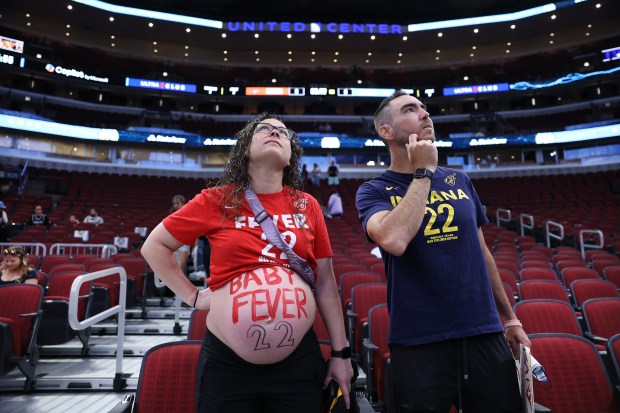Today’s subject is autofiction, specifically, the autofiction that comes in the form of Garth Greenwell’s new novel, “Small Rain.”
Greenwell is the author of two previous highly acclaimed novels “What Belongs to You” and “Cleanness,” neither of which I’ve read, but like “Small Rain” also center on a narrator with a biography much like Greenwell’s.
Despite being a portmanteau of “autobiographical fiction,” autofiction should not be confused with autobiographical fiction. There’s no definitive categorization of these differences, but I distinguish them this way.
Autobiographical fiction uses the real-life experience of the author as a jumping-off point for a narrative that is, in total, primarily fictional, with invented events, characters, dialogue and the like. Philip Roth and Saul Bellow famously wrote novels with protagonists very close to their true selves, but there is no warrant that the novels are renderings of actual events.
Autofiction is more like the fictionalization of real life. Rather than a jumping-off point, the author is a constant presence in the narrative, and while fictional departures — elisions, recreations, inventions — are part of the bargain, the effect is something closer to memoir. It’s fiction, but we’re also meant to believe what we’re reading happened pretty much as described.
My gut instinct is that I am not a tremendous fan of autofiction, except reflection tells me this isn’t entirely true. Vinson Cunningham’s “Great Expectations” could be classified as autofiction and is one of my favorite books of 2024. I didn’t make it all the way through Karl Ove Knausgaard’s six volumes of “My Struggle,” but the three I did read add up to something like 1,800 pages.
Still, many other highly touted authors of autofiction leave me totally cold, wondering what the fuss is about.
I am thinking about these things because “Small Rain” was one of the most profound reading experiences I’ve ever had. The novel felt intimate in a way that had me in its grip from start to finish.
“Small Rain” opens with the narrator in tortuous pain, seizing his whole body and bringing him to his knees in the writing studio of the house he shares with his partner, “L,” a poet like the narrator. It is the first fall of the COVID pandemic, and a hospital is the last place he wants to go, but eventually the pain is too great.
The bulk of the novel unfolds over the nearly two weeks of his hospitalization, having been diagnosed with an aortic tear, an often fatal occurrence that’s extremely rare in an otherwise healthy man in his 40s. Each day in the hospital subjects him to new degradations as the origin of the event is explored and the doctors attempt to keep the tear from worsening.
He is terrified, alone, unmoored. After a youth of sexual exploration he has settled into a loving partnership with “L,” who is only allowed to visit for a couple hours every day because of pandemic protocols.
The novel moves seamlessly, referentially between the present of the hospital and various episodes in the narrator’s past. His difficult childhood, the first flowering of his love for poetry, even a rumination on a bag of gourmet potato chips. It’s a hypnotic experience as the reader’s mind joins with the narrator’s. Even when the erudition went past me — as in a lengthy exegesis of a favorite poem — I remained invested.
A novel about a man stuck alone in a hospital bed should be inert, but “Small Rain” is anything but, a reminder of the wonder available in our individual humanities should we take the time to look and listen.
John Warner is the author of “Why They Can’t Write: Killing the Five-Paragraph Essay and Other Necessities.”
Book recommendations from the Biblioracle
John Warner tells you what to read based on the last five books you’ve read.
1. “Lies and Weddings” by Kevin Kwan
2. “Lone Women” by Victor LaValle
3. “Reckless Girls” by Rachel Hawkins
4. “The Maid” by Nita Prose
5. “The Vacancy in Room 10” by Seraphina Nova Glass
— Scherill W., Richmond, Texas
Ruth Ware is a highly reliable purveyor of the kind of tense storytelling Scherill seems drawn to. The specific choice is “In a Dark, Dark Wood.”
1. “Clock Dance” by Anne Tyler
2. “The Teacher” by Freida McFadden
3. “Death Washes Ashore” by Patricia Skalka
4. “A Better Man” by Louise Penny
5. “The Lager Queen of Minnesota” by J. Ryan Stradal
— Laura H., Naperville
I think the quiet, but deep emotional tug of Kent Haruf’s “Plainsong” is a good fit for Laura’s list.
1. “Into Thin Air” by Jon Krakauer
2. “Touching My Father’s Soul: A Sherpa’s Journey to the Top of Everest” by Jamling Tenzing Norgay
3. “The Patron Saint of Second Chances” by Christine Simon
4. “The Women’s Room” by Marilyn French
5. “The Year of Magical Thinking” by Joan Didion
— Marcia M., Racine, Wisconsin
This is a novel I haven’t thought of in quite some time, but it popped into mind unbidden in reading this list, which suggests the deep Biblioracle senses are at work: “The Lonely Polygamist” by Brady Udall.
Get a reading from the Biblioracle
Send a list of the last five books you’ve read and your hometown to biblioracle@gmail.com.




